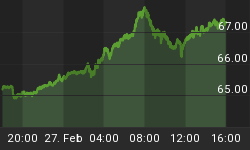The euro's fatal flaw was always people. The fact that most eurozone countries are at least nominally democratic and keep having elections means that the more complicated and draconian the process of merging them into one entity ruled by unelected bureaucrats in Brussels becomes, the harder it is to elect people at the national level who want to keep going.
Greece is an obvious example, and will provide some thrills and chills as its debt negotiations lurch to the inevitable extend-and-pretend resolution. But much bigger things are brewing as the euro's issues bite other constituencies in other ways.
In Italy, for instance, the new government recognizes that the country's only chance of functioning under a stable currency is to make serious reforms in pretty much every corner of the economy, especially its almost child-like labor laws. Here's a brief overview of those laws from the National Center For Policy Analysis:
• Cassa Integrazione Guadagni is a scheme that allows Italian businesses who need to shave their workforce to put a worker on "standby" rather than fire him outright. The government will pay the worker a large portion of his lost salary until he is rehired. Such a program keeps workers from moving to new jobs while businesses struggle to compete.
• Firing a worker in Italy for poor performance is incredibly difficult, and employers have to convince a judge that there is no alternative option available to the employer short of firing the worker. These hearings can take months, and litigation is not cheap.
• According to the World Economic Forum, Italy ranked 141st out of 144 countries in terms of its hiring and firing practices.
• Italian unions are stubborn, and businesses -- in order to avoid having to negotiate with them -- stay small. Of all the countries in the European Union, Italy has the largest number of small businesses because companies are concerned about what growth would mean in terms of union negotiations.
But of course the Italians don't like the idea of a free market in work, so they're taking some personal days to make the point. See Hundreds of thousands rally in Rome in protest over 'anti-job' reforms.
Governments, meanwhile, don't like having to deal with dissent, so in Spain and elsewhere they're trying to make it harder to organize -- which simply creates a new issue for demonstrators to protest. See Spaniards take to streets to protest 'draconian' new security laws.
For Germans the situation is a little different because they until recently have benefited from being able to sell things to the big-borrowing eurozone periphery. But now the debt thus created is looking like it will have to be covered by German taxpayers, and they're starting to regret their past decisions. See Angela Merkel's conservatives suffer worst election result since WWII.
So here's a modest prediction. After a bit more brinksmanship, Greece gets an extension and disappears from the headlines for a while. Then the focus shifts to the eurozone's real threats, which are the bigger countries where anti-euro forces on both left and right are gaining popularity. With Podemos (Spain, radical left) and National Front (France, radical right) now leading in opinion polls, sitting politicians will start doing all kinds of crazy things to keep their jobs. Negative interest rates will spread, debt monetization will expand, and the euro will get even weaker.
Then Greece will resurface, having failed to transform itself into a fully-functioning capitalist economy, and the whole thing will start again. But from an even more precarious place.















